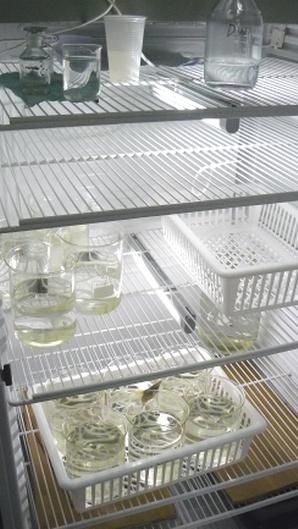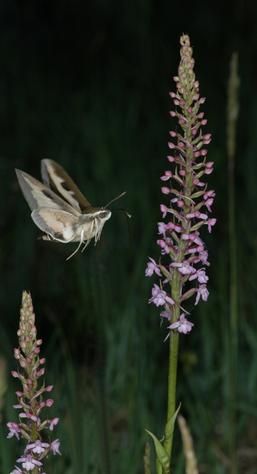
Department of Ecosystem biology
Populations
We deal with selected aspects of population dynamics in both aquatic and terrestrial ecosystems. Our emphasis is on mechanistic understanding of individual-level processes that give rise to population-level phenomena.
Aquatic ecosystams: from individuals to communities
Wanted: Postdoc candidate in Quantitative Freshwater Biology for a Junior Group Leader position
We focus on two main topics: fish population dynamics in riverine reservoirs, including the impact of anthropogenic disturbances and management (team of J. Kubečka), and life histories, population dynamics and community assembly of aquatic invertebrates in small fishless water bodies (team of D. Boukal). We link fieldwork with laboratory experiments, advanced statistical analyses and mathematical models. Our current emphasis is on the consequences of expected climate change, such as rising temperatures and changes in habitat eutrophication and structure, on trophic interactions and on consequences of phenotypic plasticity for life histories and trophic interactions in aquatic insects.

Examples of topics for undergraduate and PhD theses:
- Surveys of aquatic insect communities with conservation applications (fieldwork)
- Assembly of aquatic invertebrate communities in reclaimed sandpits (fieldwork, lab experiments)
- Predator-prey interactions: role of functional traits and environmental conditions (experiments, meta-analyses)
- Modelling of population and community dynamics in aquatic ecosystems (simulation models)
- Behaviour of anglers and fish population dynamics (data analyses, modelling)

Population dynamics a symbiotic interactions of plants
The group lead by Jana Jersáková deals with the impact of biotic and abiotic environmental factors on plant population dynamics from seed bank survival to identification of critical life stages to dispersal. The main abiotic factors covered by our research include weather conditions (temperature, precipitation), soil characteristics, management options (mowing vs. pasture); we also study the impacts of herbivory, surrounding vegetation and presence of symbiotic organisms (pollinators, mycorrhizal fungi). We strive to apply our results to conservation of engandered plant species. Our additional research covers interactions of plants and other organisms: we study the impact of pollinators on floral signals, resource allocation and reproductive strategies in plants, and the role of mycorrhizal fungi in habitat selection in mycoheterotrophic and mixotrophic plants.
Examples of topics for undergraduate and PhD theses:
- Impact of habitat fragmentation on plant-pollinator interactions
- The role of visual signals in the evolution of floral mimicry
- Ecology of rare plants species
- Restoration of orchid populations in cultural landscape
- Importance of endosymbiotic fungi in the mycorrhiza of orchids
